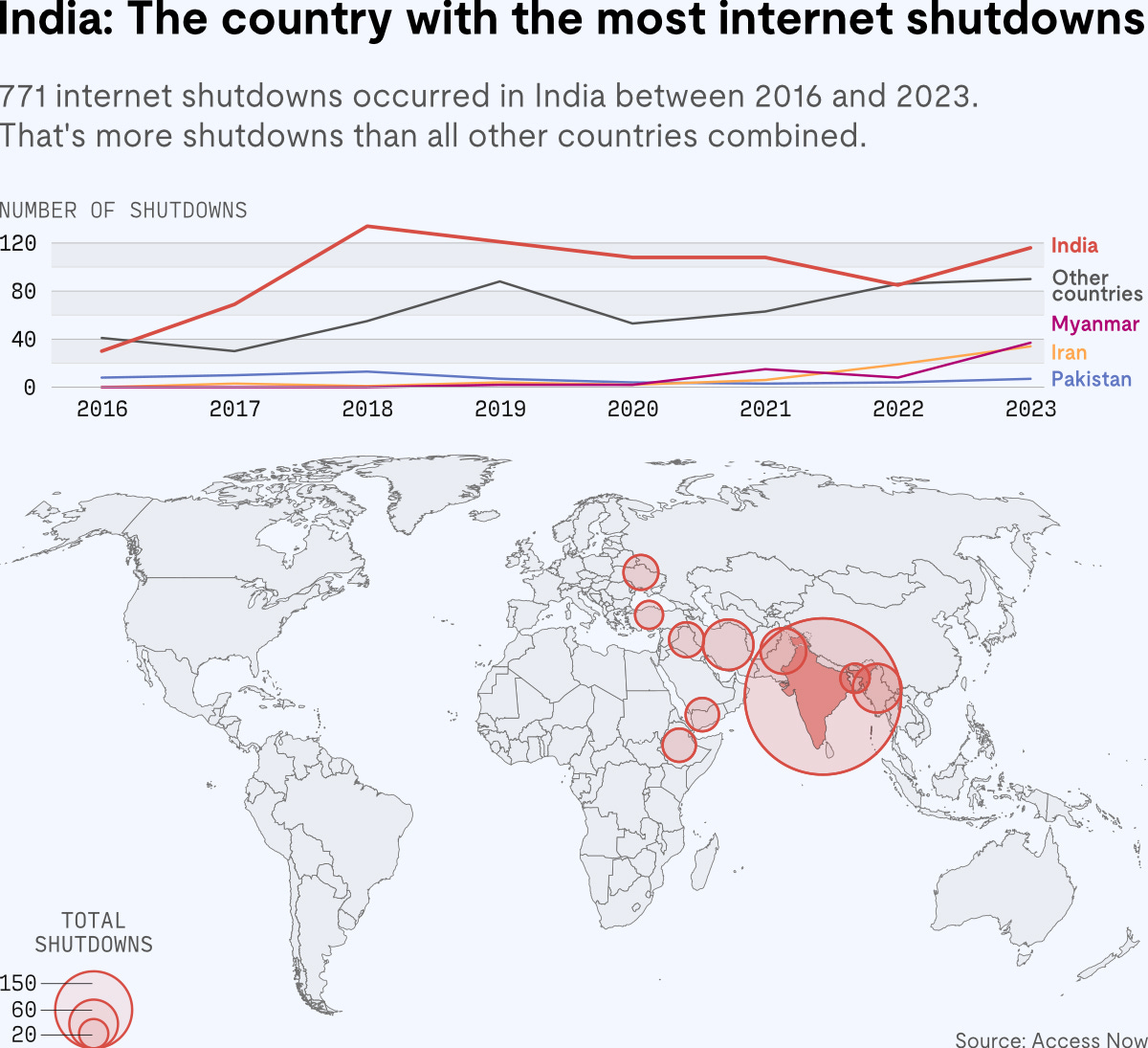This week…
Your reading time is about 6 minutes. Let’s start.
How much time have you spent on Threads? I have long abandoned XTwitter and the time I would have used to doomscroll there has now been well spent on Threads. I have been aggressively blocking, muting, and swiping left (to show disinterest) on engagement farming and other posts I find harmful, ignorant, or uninteresting.
As a result, Threads’ algorithm shows me posts from journalists, media critics, academics, wholesome sports fans, dog lovers, and, for some reason… immature queer people? The last bit probably stemmed from my reluctance to downgrade queer posts too harshly to the point they no longer appear on my timeline. However, it leaves me with low-quality posts from insecure, emotionally unregulated, possessive queer Gen Zers. How many of their posts can I swipe left on before the algorithm thinks I’m homophobic? Anyway, I have stopped posting for the last two weeks (lol).
Your Wikipedia this week: Digital self-determination
And now, a selection of top stories on my radar, a few personal recommendations, and the chart of the week.
ICYMI: The Previous Block was about weird Europe and weird Internet. But even better, a story about toxic French bananas would have fit in with #228! FWIW:
Far-right wins Austria election, boosting European rightwing surge by François Murphy and Dave Graham for Reuters.
The toxic legacy of the French banana by Chris Knapp, Giada Santana, and Juli Simond for The Dial.
CORRECTION NOTICE: None notified.MISINFORMATION
In global game of influence, China turns to a cheap and effective tool: fake news
Didi Tang and David Klepper for AP:
In addition to its state media, Beijing has turned to foreign players—real or not—to relay messages and lend credibility to narratives favoring the Communist Party, said Xiao Qiang, a research scientist at the School of Information at the University of California, Berkeley. Xiao also is editor-in-chief of China Digital Times, a bilingual news website that aggregates information from and about China.
Beijing’s methods are wide-ranging and links to the government are often difficult to prove, Xiao said. But whether it’s journalists with American-sounding names or an Indian influencer, the consistently pro-Beijing messages give them away.
If it works, it works. Loosely linked:
Social media owners top global survey of misinformation concerns by Dan Milmo for The Guardian.
Presence of misinformation significantly increases the time required for the community to converge to the truth by Brian Ball et al. in Humanities and Social Sciences Communications.
TikTok videos spread misinformation to new migrant community in NYC by Malick Gai for The Markup.
Journalists face misinformation when covering electronic voting in Brazil by Carolina de Assis for LJR.
Why Russia’s broadcaster RT turned to covertly funding American pro-Trump influencers by Shannon Bond for NPR.
While misinformation networks on the right may be more widely known, at the other end of the political spectrum their counterparts have been serving the same ends by Muhammad Idrees Ahmad for New Lines Magazine.
TECH, SCIENCE & THE INTERNET
The strange saga of ultrarunner Camille Herron and Wikipedia
Frederick Dreier for Outside:
On September 24, Conor Holt, the husband and coach of American ultrarunner Camille Herron, admitted to altering the biographies of Herron, Courtney Dauwalter, Kilian Jornet, and other prominent runners on the website Wikipedia. Holt’s edits boosted his wife’s accolades but also downgraded those of the other prominent ultrarunners.
“Camille had nothing to do with this,” Holt wrote in an email sent to Outside and several running media websites. “I’m 100 percent responsible and apologise [to] any athletes affected by this and the wrong I did.”
The confession brought some clarity to an Internet mystery that embroiled the running community for several days and sparked a flurry of chatter on social media and running forums. Herron, 42, is one of the most visible ultrarunners in the sport, and over the years she has won South Africa’s Comrades Marathon and also held world records in several different events, including the 48-hour and six-day durations. But the Wikipedia controversy led to swift consequences for Herron—her major sponsor, Lululemon, parted ways with her on Thursday morning.
The entire ordeal sprung from an investigation led by a Canadian journalist Marley Dickinson who spent more than a week following digital breadcrumbs on dark corners of the Internet. For those who haven’t spent the last week breathlessly refreshing niche running websites, here’s how distance running’s most bizarre controversy in recent memory unfolded.
Riveting. Loosely linked:
The cultural power of the anti-woke tech bro by Rebecca Jennings for Vox.
Telegram will now provide some user data to authorities by Lily Jamali for BBC.
The implications of turning everyday tech into weapons of destruction by Nishita Jha for Coda.
A German journalist wrote about a few trials, then an AI decided he was actually the culprit by Simon Thorne for Nieman Lab.
The downstream effect of fixing a racist lung test by Felice J. Freyer for Undark.
Researchers fear the end for science in Venezuela by Luke Taylor for Nature.
Other curious links, including en español et français
LONG READ | How UK lingo conquered the US by Ben Yagoda for The Guardian.
PHOTO ESSAY | More than 1,000 people took to the streets of Tel Aviv by Al Jazeera with photography by Jack Guez of AFP.
Mexico’s president held court each morning for 6 years. Now he’s retiring from public life by Megan Janetsky for AP.
Is making friends as an adult really hard, or is it just me? by Allie Volpe for Vox.
Why romanticising your own life is philosophically dubious, setting up toxic narratives and an inability to truly love by Anna Gotlib for Aeon.
Robots con rostro humano: Pigmalión en el valle inquietante por Pablo G. Bejerano en Retina.
Masculinidades frágiles e inseguras por Carolina Pulido en CTXT.
La hora de Claudia Sheinbaum: retos e incógnitas de la primera presidenta de México por Beatriz Guillén en El País.
Le Québec est-il un traître aux minorités francophones du Canada? par Toula Drimonis (tr. Kim Lan Dõ-Chastenay) dans The Walrus.
Faut-il forcément faire cours en anglais pour internationaliser les formations ? par Grégory Miras (Université de Lorraine) et Nicolas Molle (Université de Lorraine) dans The Conversation.
L’attirance de l’ultra-droite française pour la Russie de Poutine par Nicolas Lebourg (Université de Montpellier) et Olivier Schmitt (University of Southern Denmark) dans The Conversation.
What I read, listen, and watch
I’m reading Justice for Some (2019) by Noura Erakat to understand the “question of Palestine” through the power and control of international law.
I’m listening to Tech Won’t Save Us with Parix Marx and Tamara Kneese to discover what happens to our digital footprints when we die.
I’m watching Al Jazeera’s Start Here to learn about international law.
Chart of the week
India shuts down the internet far more than any other country between 2016 and 2023 according to data from Access Now. Laura Kurtzberg mapped the affected areas for this piece by Ananya Bhattacharya for Rest of World.





